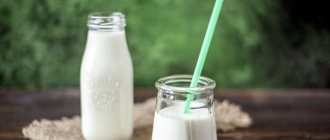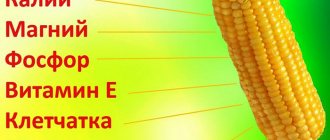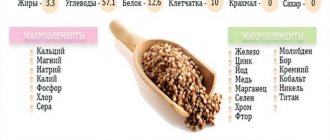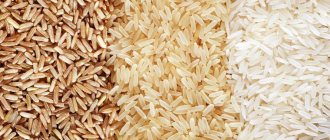How many calories are in the boiled egg white of one egg without yolk, how many calories are in the egg white
Most of the protein is ordinary water, and only the natural protein itself is allocated only 20% of its total mass. One cannot help but be interested in the question of how many calories are in egg whites, if they are so valuable and healthy. Protein itself is a low-calorie food product and is mainly albumin. Protein contains many useful ingredients and substances that have a positive effect on the human body. Consists of:
- Vitamins K and group B;
- Neocin;
- Choline;
- Protein;
- Amino acids;
- Minerals.
Each of these components has an auxiliary function for the body, because it helps various metabolic processes occur faster, promotes the appearance of cells and hormones, and also has tonic and antitoxic effects. So, how many calories are in an egg white without the yolk? The average caloric content of 100 grams of protein is 44.4 calories. This is very little, so even people on a diet can safely eat this product and not count calories.
Considering that the size of the eggs is ambiguous, and the weight as well, it is impossible to talk about the exact number of calories in the egg white of one egg. There are small, medium and large eggs. Their calorie content will vary from 70 to 80 or more calories. 1 white of one egg contains no more than 20 units. It is recommended to eat the egg boiled or fried, that is, after undergoing heat treatment. Such an egg is absorbed by the body much faster and more voluminously than the raw product.
Quail egg calorie content per 100 grams
Compared to chicken eggs, the calorie content of a quail egg is slightly higher. The calorie content of 100 g of product is equal to 168 kcal. On average, the weight of 1 egg does not exceed 9-10 g, so its calorie content is 14 or 16 kcal.
In terms of mineral content, quail eggs are somewhat inferior to chicken eggs, however, the content of some elements in such a product is several times higher. For example, there is 3 times more magnesium in a quail egg.
It is this element that is responsible for stable operation:
- nervous system;
- blood supply systems;
- calcium and cholesterol metabolism.
The iron content in a quail egg is significantly higher than that in a chicken egg, so their consumption has a beneficial effect on the blood supply and improves metabolic processes at the cellular level.
The vitamin A content in such an egg is almost 3 times higher than in chicken eggs.
Quail eggs can also vary in size and shape, so the calorie content is 1 pc. raw or cooked product may differ.
Calorie content depends on the method chosen for preparation.
Calorie content of the product:
- raw nutritional value - 168 kcal;
- egg calorie content 1 pc. (boiled) - within 160 kcal;
- calorie content of fried without oil - 185 kcal.
Does the caloric content of cooked protein change?
Usually, when preparing a product, its calorie content changes significantly. When boiled, egg white retains its calorie content at its original level, so the question of how many calories are in boiled egg white disappears by itself. Both raw and cooked, the nutritional value per 100 grams of protein averages 44 kcal. When frying, the protein's calorie content will be higher due to the use of fat or vegetable oil. If you fry a whole egg, its calorie content will be on average about 360 units per 100 grams.
The yolk is another component of any egg. The composition of this component is also very rich in various beneficial substances and minerals. For example, the yolk contains huge portions:
- Vitamins A, D, E;
- Biotin;
- folic acid;
- microelements.
The calorie content of the yolk is about 60 calories per 100 grams of product. With this in mind, it is quite possible to even go on a diet that includes eating eggs. Their caloric content is minimal, but the benefits are simply colossal. Due to the valuable composition of this product, you can saturate your body with useful substances and minerals.
You don't have to eat just eggs. It is great for various dishes and used in cooking. In this case, they add taste and a touch of piquancy to the finished dish. With them, even a sandwich will be tastier and more satisfying, and, in fact, healthier. Moreover, they will not add significant calorie content to the sandwich. Absolutely anyone can profit from an egg. This is one of the quick options for a snack and food in general. In addition, it is very tasty and will allow you to immediately satisfy your hunger.
The nutritional value
A proper diet should be balanced not only in calories, but also in nutrients: proteins, fats, carbohydrates.
BZHU boiled egg, 1 pc.:
- proteins (proteins) - 6.6 g;
- fats - 6.1 g;
- carbohydrates - 0.3 g.
Egg white proteins are a particularly valuable product; they contain 7 essential amino acids, the most important of which are:
- tryptophan - participates in the production of serotonin - the hormone of good mood;
- methionine - responsible for burning fat in the body;
- lysine is a building material for protein synthesis in the body.
There are a lot of proteins in the yolk, but fats still predominate in it.
Video
Fat composition of chicken yolk:
- fats - 1.6 g;
- monounsaturated fatty acids (favorable for the heart and blood vessels) - 3.5 g;
- polyunsaturated omega acids - 1.7 g;
- saturated fatty acids - 2 g;
- cholesterol - 0.13 g.
Such a beneficial combination of fats for the body is found only in salmon oil!
Take note: the cholesterol in chicken yolk is balanced by the lecithin it contains, which utilizes excess cholesterol and fats. Eating egg yolk in moderation does not cause the formation of cholesterol plaques.
The calculation of BJU in a chicken egg per 100 g of product is presented in the table:
| Chicken eggs/100 g | Proteins (g) | Fat (g) | Carbohydrates (g) |
| Raw | 12,7 | 11,5 | 0.7 |
| Hard Boiled | 13 | 11,6 | 0,8 |
| Soft-boiled | 12,8 | 11,6 | 0,8 |
| Fried | 12,9 | 21 | 0,9 |
| Protein | 10,5 | 0 | 0,1 |
| Yolk | 17,8 | 30,9 | 0,7 |
So, there are almost no carbohydrates in chicken eggs, they are a source of protein and healthy fatty acids and at the same time have low calorie content, so they are included in the diet of many diets: therapeutic and sports.
Video
Calorie content of dishes
Preparing an omelet, scrambled eggs or toast with eggs for breakfast for the whole family is easy and quick; almost everyone can do it. In addition, such food is very nutritious.
Fried eggs
You can cook diet scrambled eggs in a frying pan with a ceramic coating that does not require adding oil, or in the oven. Then you should only consider the calories of the eggs and seasonings if you add them. If you are used to cooking a dish in oil, you must also take into account its energy value. The calorie content of scrambled eggs depends on the oil. On average, 100 g of scrambled eggs cooked in vegetable oil contains 240 kcal.
Two egg omelette
An omelet is a dish made from eggs and milk. Traditionally fried in sunflower oil, but you can cook it in the oven or microwave. Then adding oil is not necessary. An important aspect is milk. The fattier the milk, the more calories there are in the omelet. For example, if for cooking you take 2 eggs of 60 g and 100 ml of milk with 2.5% fat, the calorie content of which is 52 calories, you will get an omelette for about 210 calories. You can significantly reduce it if you prepare it from proteins. Then its calorie content will be 90–100 kcal. If you like hearty omelettes with tomatoes, cheese and bacon, you need to consider the value of these products depending on their quantity in the dish.
Toast with egg
The calorie content of a dish is affected by the energy value of the bread and butter on which the croutons are prepared. Thus, the calorie content of 100 g of croutons (from white bread) with an egg (1 pc.), fried in butter (2 g), is about 190 calories.
Pie with onion and egg
Pie with green onions and eggs, for the preparation of which flour, eggs (5 pieces and 1 yolk), sour cream 10% fat, butter and baking powder are used - the dish is very high in calories. There are about 285 calories per 100 g of this pie.
Dietary egg recipes
There are a great many recipes for egg dishes, and many of them can be classified as dietary.
Eggs, boiled without shell
This recipe can be called one of the lowest calorie. The ingredients you will need:
- 1 tbsp. chopped nuts
- 5 tbsp. l. vinegar
- 2 eggs
- salt
Stir vinegar and salt into 1 liter. water and place on the stove. When the water begins to boil, break the eggs and place them in a ladle one by one into the pan. The eggs should not touch each other; After boiling for a few minutes, you can remove them, place them on a plate and sprinkle with chopped nuts.
Eggs in sour cream
Ingredients:
- 3 eggs
- 1/3 cup sour cream
- 1/2 tsp. butter
- 1/4 cup grated cheese
- salt
Place sour cream in a frying pan, carefully break the eggs on top, sprinkle with cheese and salt and drizzle with melted butter. Bake in the oven until done.
Mineral composition
In addition to KBJU, the nutritional value is provided by the mineral composition of proteins and yolks. In addition to amino acids, chicken protein contains a complex of B vitamins, which are necessary to maintain immunity, normal metabolism and the health of the nervous system.
The composition of chicken yolk is even richer:
- fat-soluble vitamins A, E, D;
- biotin (B7);
- choline (B4);
- the most important minerals: phosphorus, sulfur, potassium, magnesium, iron, selenium.
By refusing to eat yolk, a person deprives himself of many beneficial microelements that are difficult to find in other foods under diet conditions. But the not so significant calories in a boiled egg, 1 piece, allow you to consume it entirely at least once a day. Thus, along with amino acids, you receive a good dose of vitamins and microelements. A soft-boiled chicken egg is especially useful in this case.
General concepts about calorie content and categorization
A chicken egg contains 12 vitamins, and in terms of vitamin D content, the product is second only to fish oil. It is also rich in vitamins E, A and B. But this is not the only advantage. An important plus is the quality and complete digestibility of the elements contained in a chicken egg. BJU (proteins, fats and carbohydrates) are in an optimal ratio, which guarantees that the basic needs of the body are covered.
When calculating the calorie content of a product, consider the product labeling. If we consider the current Russian standards, then it is worth highlighting the following markings:
- D - dietary (must be sold within a week);
- C is a table product, the sale of which is given 25 days.
A second character is placed next to the letter. Here the values are as follows:
- “3” – 3rd category. Weight - 34-44.9 g .
- “2” – 2nd category. Weight - 45-54.9 g .
- “1” – 1st category. Weight - 55-64.9 g .
- “O” - selected type, which weigh 65-74.9 g .
- “B” is a product of the highest category. This includes those weighing from 75 grams .
When calculating calories, consider weight and quality. In addition, the method of preparation is also of great importance. Thus, the product can be eaten raw, boiled (including soft-boiled) and fried. Let's take a closer look at the composition of a chicken egg (proteins, carbohydrates, fats) and calorie content for each option.
Beneficial features
Nutritionists have calculated that a healthy person should consume about 300 eggs per year in order not to have a deficiency of the elements necessary for the body.
- Complete egg white provides the body with essential amino acids, the lack of which will delay the synthesis of new cells in the body - the blood formula is disrupted, and internal organs suffer.
- Omega-3 polyunsaturated acids have a beneficial effect on the cardiovascular system and are involved in muscle recovery in athletes.
- Choline promotes mental performance and ensures liver health.
- Biotin - the “beauty vitamin” - regulates metabolic processes in the cells of the skin, hair, and nails.
- Vitamin A is a powerful antioxidant and is essential for normal vision.
- Vitamin E - tocopherol - is an essential element for the normal functioning of the reproductive system of women and men.
- Vitamin D is essential for healthy bones and joints.
For those losing weight, boiled chicken eggs are a real godsend. Providing the body with useful nutrients, they are low in calories and force the body to spend additional calories for absorption.
Video
Polyunsaturated fatty acids fight fat deposits without damaging muscles or causing hunger. Boiled eggs are also popular in the diet of athletes, because they are a natural source of amino acids for muscle recovery and growth.
Take note: if you suffer from insomnia, try having boiled eggs for dinner 3 hours before going to bed. They promote peaceful sleep without awakenings and nightmares.
Briefly about the composition and beneficial properties
Since the discovery of cholesterol in eggs, attitudes towards it have changed dramatically. Many people who emphasized healthy eating stopped taking the product or reduced their consumption. But in those days, few people understood the features of cholesterol and its effect on the body. There was no division into two categories yet - “harmful” and “good” cholesterol.
Over time, scientists conducted a series of experiments that made it possible to identify an important element for the body - lecithin. The latter, in some way, “neutralizes” cholesterol and makes eating eggs practically safe for humans (with moderate consumption). In addition, it was possible to prove the benefit of the product in the treatment of atherosclerosis and for the prevention of this disease.
The energy value of a chicken egg is sufficient to cover the body's protein needs and provide energy. In this case, the benefits of the product are considered from two perspectives:
- Protein is almost no different in quality and properties from similar elements contained in meat or milk. Dozens of studies have shown that the product is quickly absorbed and saturates cells with a significant set of amino acids. In addition, regular protein consumption is a chance to strengthen the body and accelerate muscle growth. It is also useful for children who need material for growth.
- The yolk is a substance that contains choline, biotin and lecithin, and vitamins - tocopherol, retinol and B vitamins. The yolk also contains microelements - iron, phosphorus and potassium.
The composition of the egg (proteins, fats and carbohydrates, vitamins and minerals) causes the following effect on the body :
- Protects the optic nerve and prevents cataract formation.
- Helps renew blood. The product contains elements that accelerate and optimize hematopoietic processes.
- Stimulation of the immune system, acceleration of weight loss processes.
- Improving performance and strengthening memory.
- Renewal of body cells, preservation of youth. This is possible due to the presence of tocopherol in the composition.
- Helps in the preservation of bones and teeth (explained by the presence of phosphorus in the composition).
Chicken eggs, consumed in moderation, are beneficial for the body. It is recommended to eat boiled foods containing fewer calories. In addition, they are absorbed faster and do not pose a health risk. It is allowed to take eggs (raw and boiled) during the diet.











